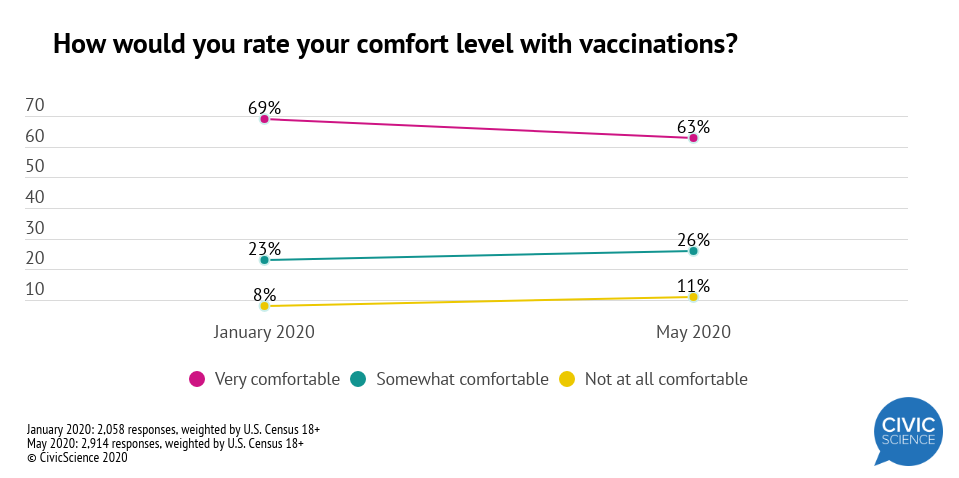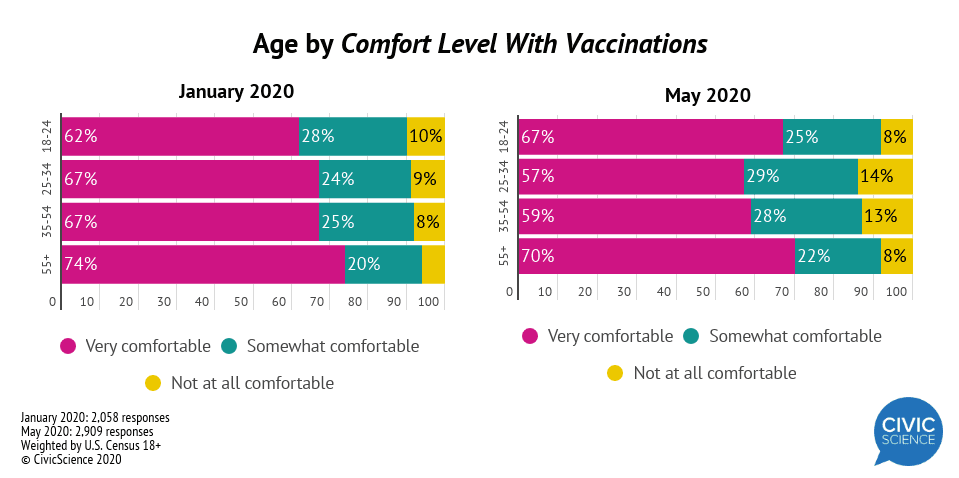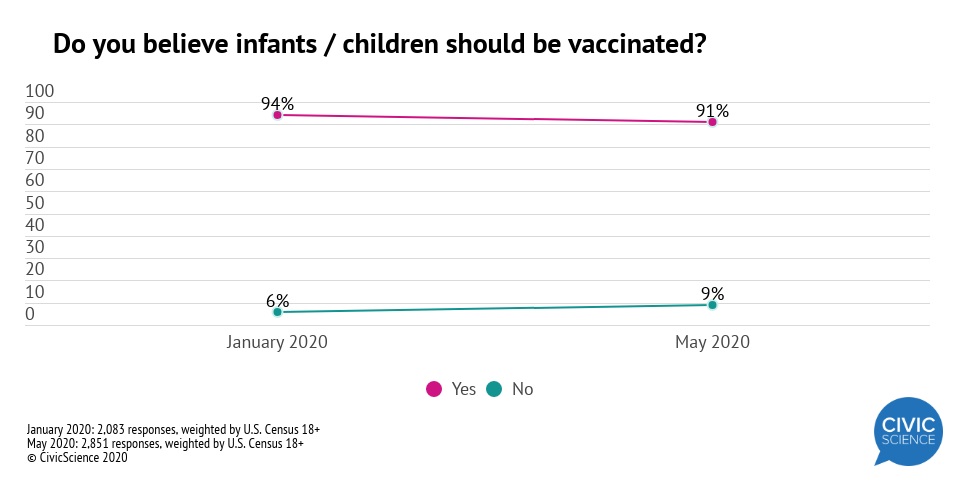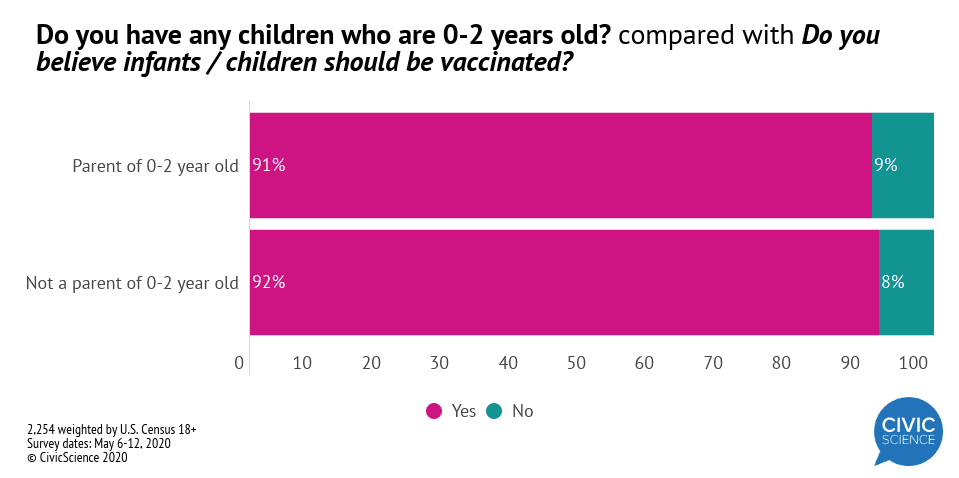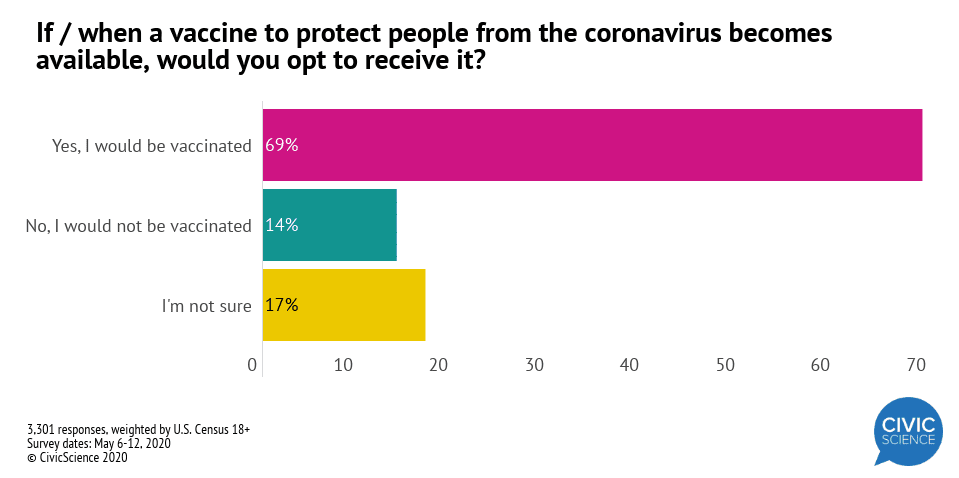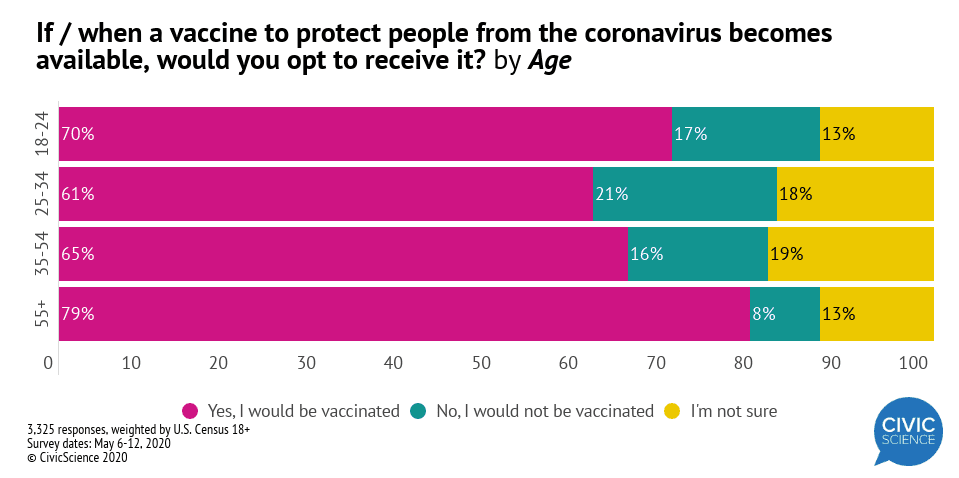According to a CivicScience survey of 2,900 U.S. adults, the percentage of individuals who say they are ‘very comfortable’ with vaccinations has declined by six percentage points since a January study. With that, those who report they are ‘not at all comfortable’ with vaccinations rose three percentage points. That means amid a global pandemic and the daily uncertainty that comes with it, comfortability in vaccinations may be in a state of further flux.
The shift seems to come from 25-54 year olds. In the January study, 67% of Millennials and Gen Xers, respectively, said they were ‘very comfortable’ with vaccinations. This dropped to 57% and 59% for both groups, while ‘not at all comfortable’ increased. In the most recent poll, we see the highest comfortability rating from Gen Z and Baby Boomers.
Infant and Childhood Vaccinations
We see a similar yet small decline in adults’ belief that infants and children should receive vaccinations. Support for routine vaccinations decreased three percentage points since the January 2020 report.
Interestingly, parents of children 0-2 years of age are just as likely as the general adult population (and non-parents of 0-2 year olds) to believe in childhood immunizations.
While comfort in vaccinations at large may have gone down, the good news for immunization advocates is that being somewhat uncomfortable with the concept does not necessarily mean inaction. Since January, support for both mandatory and elective vaccinations has increased. The same percentage of the population (5%) remain in opposition to any vaccination. You could say that more people are seeing the need for elective vaccinations due to the pandemic.
Preventing COVID-19
When it comes to the coronavirus and a potential vaccine to protect from COVID-19 in the near to distant future, people are unsure. Though the majority (69%) of U.S. adults would opt to receive such a vaccine if and when it becomes available to the public, 14% say, at least right now, that they would choose not to. Another 17% are not sure how they’d proceed.
Again, we see the most backing for this future vaccine among Gen Z and Boomers, with the most hesitancy in 25-54 year olds.
Going Back to the Norm
Those who would opt to get this vaccination to prevent the coronavirus are much more likely to extend their own quarantine once lockdown mandates are lifted in their area, while those who do not want the vaccine will resume all or most of their normal activities.
Vaccine hesitancy is growing amid this pandemic as people may be unsure of how, or if at all, a new immunization could protect us. However, consider it a good sign for health professionals that most adults would opt-in on a potential coronavirus vaccine – and that support of vaccinations both elective and mandatory has grown. But still, it is clear that some are wary of a new vaccination.
